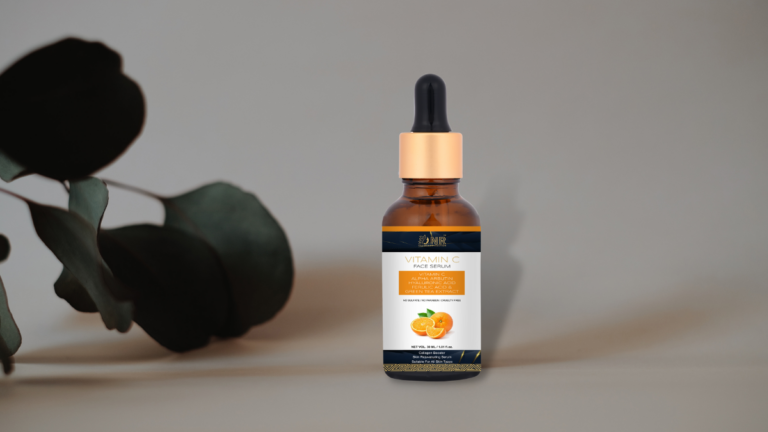
There are numerous benefits of vitamin C for the skin. It aids in the prevention of acne and aging spots. In addition, it promotes skin suppleness and the removal of wrinkles. Vitamin C has been shown to be effective against the sun’s UV rays, and it helps protect your skin from free radicals, which can promote cellular aging. Find out about some of the benefits of Vitamin C for the skin, as well as how to get the most out of it.
#1 Vitamin C Boosts Collagen
Collagen naturally present on the surface of our skin is important for skin elasticity and it helps to keep it from sagging. However, as you age, your body slows down collagen production. This is why people start to notice that their skin, hair, and nails starts to sag or thin with age. That’s where vitamin C comes in. Applying vitamin C to your skin topically can help increase the production of collagen, which is what keeps skin looking firm.
#2 Vitamin C Promotes Healing
Vitamin C helps heal wounds, supports connective tissue, and protects against damage. You may take supplements, increase your intake of the nutrient, or apply it to your skin. All of these things assist to heal open sores, especially in those who don’t receive enough of the substance. The vitamin aids the body’s production of collagen, which is required to heal this sort of damage.
#3 Vitamin C Diminishes Scars
Applying vitamin C gel to the skin decreased the visibility of surgical scars in one study. Half of the 80 participants in the research administered vitamin-infused silicon gel to their wounds daily for 6 months after their sutures were removed. Their scars were less evident thereafter than those of persons who had not taken the product.

Pick a Potent Vitamin C Product
Look for serums with vitamin C concentrations ranging from 10% to 20%. Lower amounts may not provide the promised advantages, while greater amounts may irritate your skin without providing any added value. Many vitamin C serums contain extra ingredients that are designed to enhance vitamin C’s benefits.
Apply Vitamin C After Cleansing
Apply vitamin C cream or serum to your face after washing it and before applying moisturizer. It may hurt or make your skin red at first, but this should subside if you continue to use it. Before applying any new cosmetics to your entire face, test them on a tiny area first.
Sign up & Save 🎁
Be updated on new posts, arrivals, trends and offers. Sign up now!
FAQs – Frequently Asked Questions
What is vitamin C?
Vitamin C is a naturally occurring nutrient that our bodies require to survive, and it plays an important role in healthy skin, health maintenance, and disease prevention. Vitamin C is a vitamin that the human body does not produce on its own and must obtain from meals or supplements. Fruits, vegetables, leafy greens, and ascorbic acid supplements contain it.
Why is vitamin C important for the skin?
Vitamin C aids in the reduction of sun damage and scarring, the improvement of sun damage and fine lines, the treatment of acne, the evenness of skin tone, and the brightening of the skin. Vitamin C can also help to erase and prevent dark spots, improve skin brightness, and minimize the appearance of pores.
Does vitamin C help reduce dark spots?
Yes. Research on patients with dark spots found that when they were supplemented with vitamin C, the dark spots became less noticeable.
Why would I use a vitamin C product?
Using a vitamin C product can be helpful to spike your skin’s production of collagen and elastin. Collagen and elastin make up the support structure of your skin and may help improve the skin’s appearance.
How does vitamin C help your skin?
The topical application of vitamin C can help keep your skin looking firm and smooth. It also reduces wrinkles, fade acne scars, and heal wounds. Using vitamin C can even eliminate the appearance of cellulite.
Can I apply vitamin C to my face after using a facial cleanser?
Yes. Also can use an alcohol-free toner to remove any traces of cleanser and then apply the vitamin C serum or cream.







